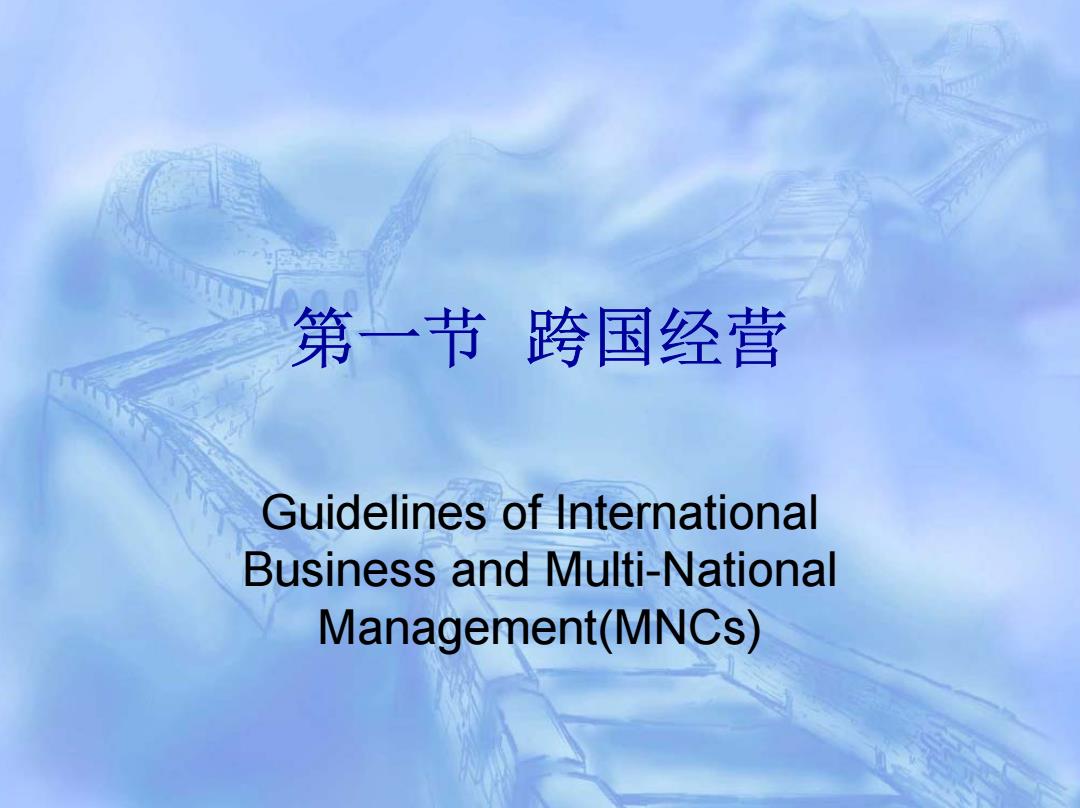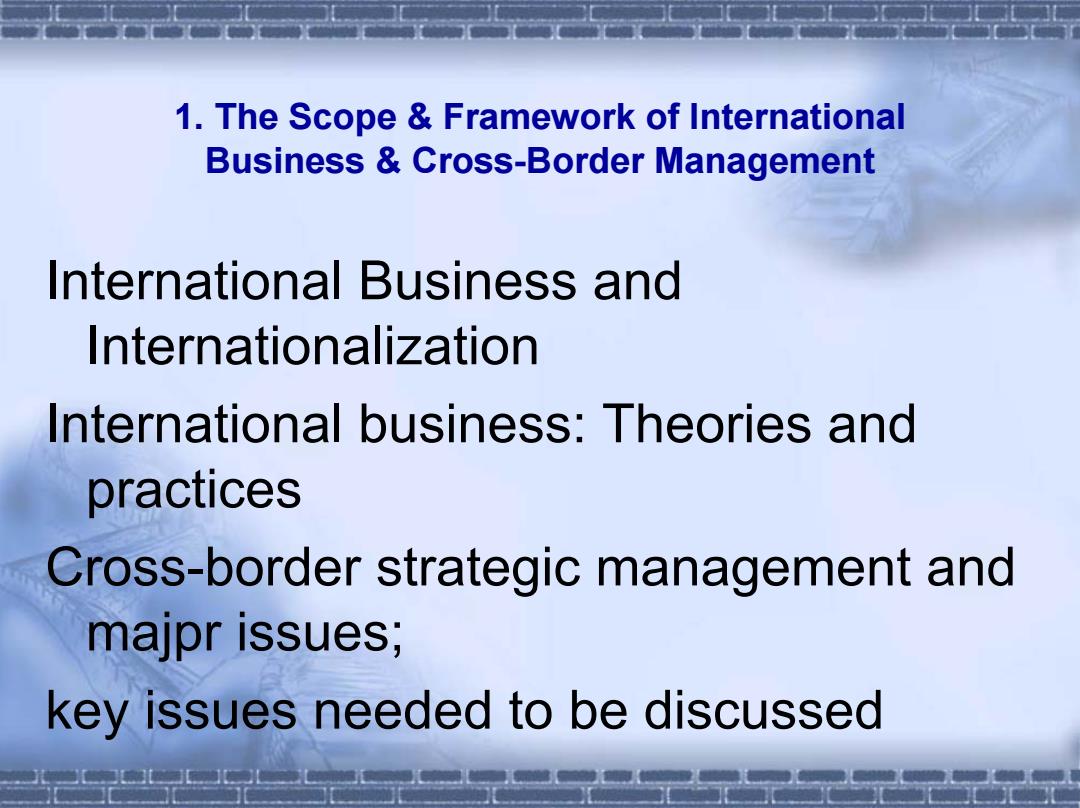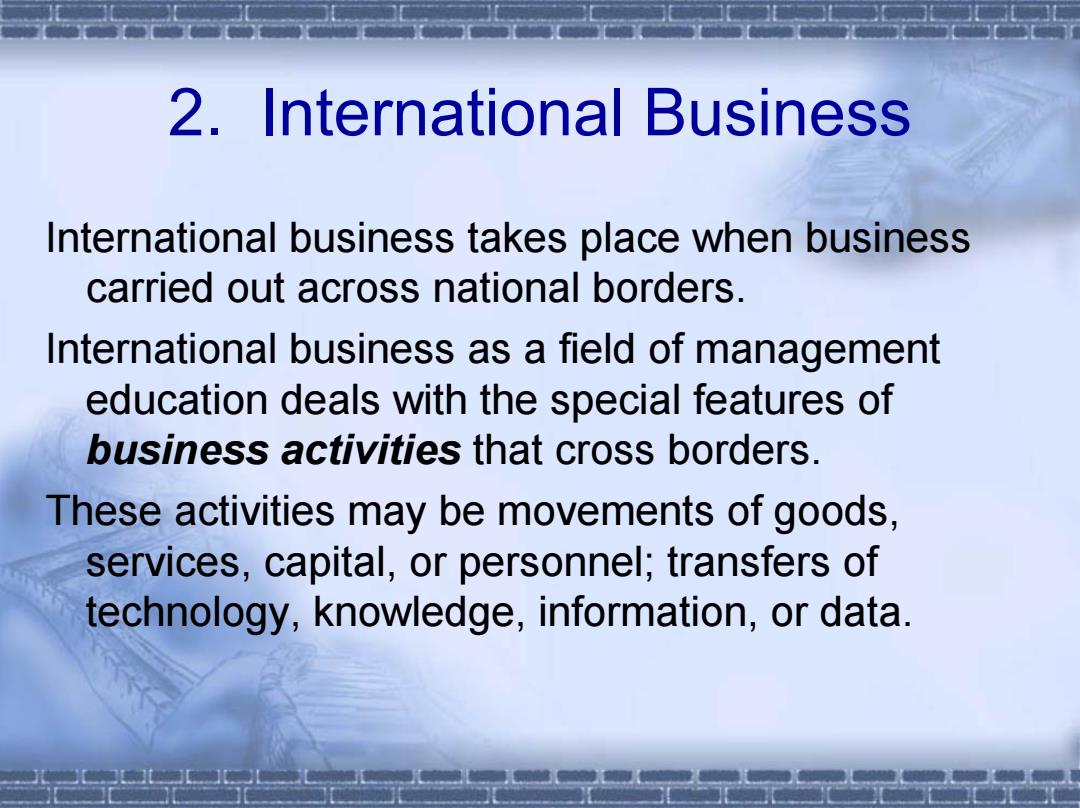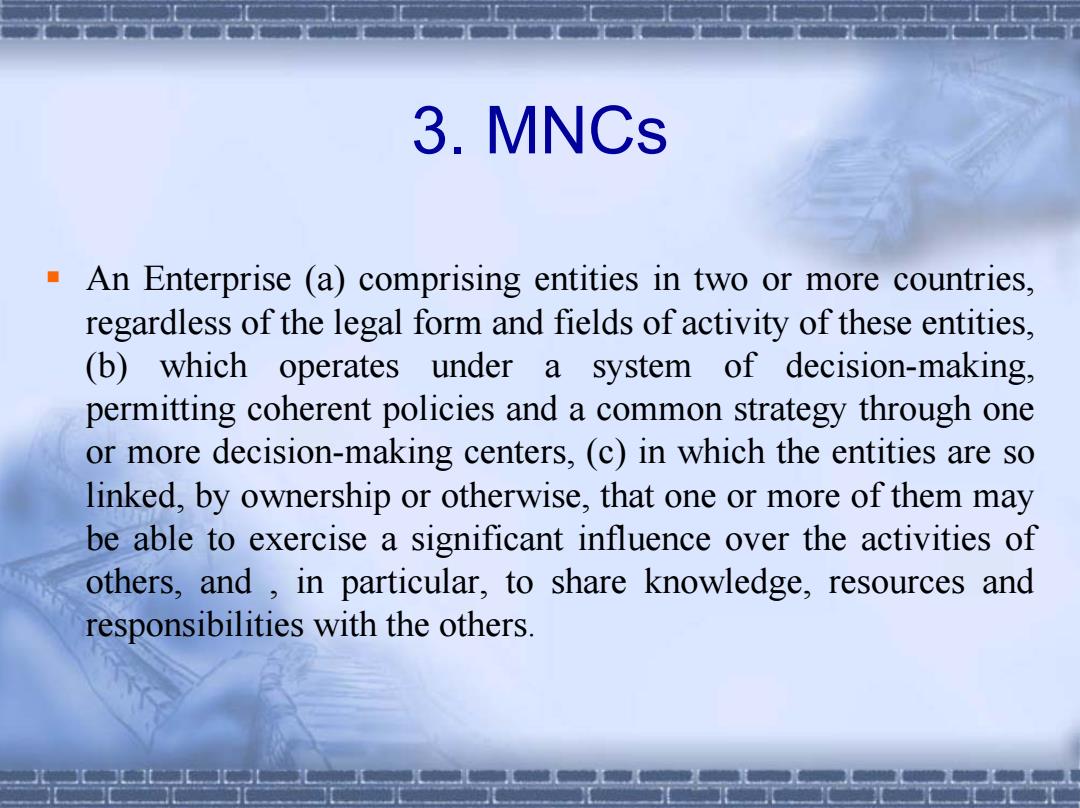
第一篇导论 第一章跨国公司与跨国经营
第一篇 导论 第一章 跨国公司与跨国经营

第一节跨国经营 Guidelines of International Business and Multi-National Management(MNCs)
第一节 跨国经营 Guidelines of International Business and Multi-National Management(MNCs)

1.The Scope Framework of International Business Cross-Border Management International Business and Internationalization International business:Theories and practices Cross-border strategic management and majpr issues; key issues needed to be discussed
1. The Scope & Framework of International Business & Cross-Border Management International Business and Internationalization International business: Theories and practices Cross-border strategic management and majpr issues; key issues needed to be discussed

2.International Business International business takes place when business carried out across national borders. International business as a field of management education deals with the special features of business activities that cross borders. These activities may be movements of goods, services,capital,or personnel;transfers of technology,knowledge,information,or data
2. International Business International business takes place when business carried out across national borders. International business as a field of management education deals with the special features of business activities that cross borders. These activities may be movements of goods, services, capital, or personnel; transfers of technology, knowledge, information, or data

3,MNCs An Enterprise (a)comprising entities in two or more countries, regardless of the legal form and fields of activity of these entities, (b)which operates under a system of decision-making, permitting coherent policies and a common strategy through one or more decision-making centers,(c)in which the entities are so linked,by ownership or otherwise,that one or more of them may be able to exercise a significant influence over the activities of others,and,in particular,to share knowledge,resources and responsibilities with the others
3. MNCs An Enterprise (a) comprising entities in two or more countries, regardless of the legal form and fields of activity of these entities, (b) which operates under a system of decision-making, permitting coherent policies and a common strategy through one or more decision-making centers, (c) in which the entities are so linked, by ownership or otherwise, that one or more of them may be able to exercise a significant influence over the activities of others, and , in particular, to share knowledge, resources and responsibilities with the others